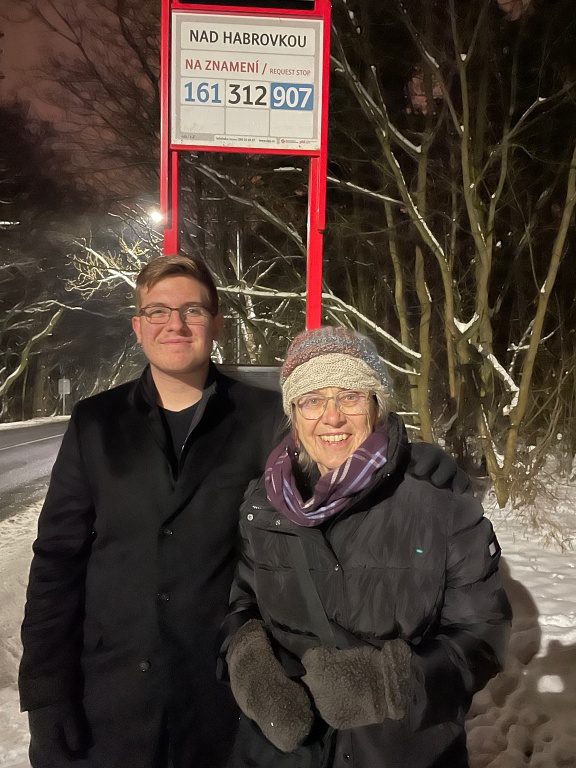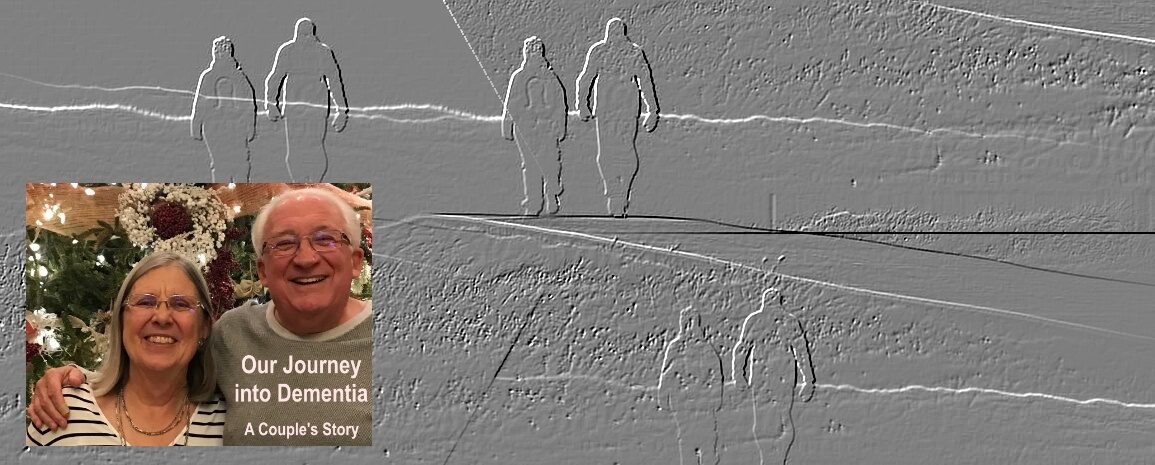One day we decided to sit down and talk about how we got to today, and let Connie give the patient’s perspective.
This is part of an ongoing series about our family’s experience with dementia. There is no order to it, just observations, reflections and, I hope, some guidance for others on this journey or who may someday begin it. It is not intended as any sort of financial, medical or psychiatric advice. Just one family’s experience…
ONE THING I have noticed since we began our journey into, and through, dementia, is that it’s interesting to see how people suffering from this horrible condition feel. Most of the literature is written from either a medical standpoint or is aimed at caregivers. But there are some good interviews with patients. Below is a link to a sample.
https://alzheimersdisease.net/living/interview-kris
I decided before we got any deeper into Connie’s condition to ask her things like what she knew and when she knew it, how she felt along the way. I didn’t have a plan for the interview. One day, July 23, 2024, when she was with me back at our apartment in Chestnut Square in West Chester, PA, I just turned on the recording app on the iPhone and we talked. Here it is.
Rich: When did you start thinking something was going on? Was it our Christmas trip to see Andi (daughter) in Prague in 2022? Was there anything happening then?
Connie: Yes, just because, everything was just balling up inside. I really had to…I felt I needed to do things with people but I really couldn’t because I wasn’t strong enough.
Rich: When we went to Prague I thought your anxiety was, for some reason, just about a big trip. But it was more than that.
Connie: I had anxiety about not being able to keep up with everything and everyone. I think I can take this further, though, to earlier that year when we went to Utah (Trip with Andi and grandkids and our son-in-law’s folks around grandson Jake’s college graduation). I was starting to develop the same thing. I just felt off my game the whole time. One thing I remember, we were playing games at the Air B&B and there was one game everyone wanted to do and Andi had to give me cues. One of things that was in this setup was one person had to tally things and it was me and I couldn’t do it, couldn’t follow it enough to keep score.

Rich: Can you distinguish between physical and mental fatigue and maybe dementia in Prague?
Connie: We were doing a lot of things after we got there and I felt like I was having to make decision around day trips, things I could and could not do. You were wondering why I was so precautious about roaming around? I was scared.
Rich: And you didn’t want me to go out and roam around on my own. Why?
Connie: I was afraid something would happen to you.
Rich: So, when we got back to the States in January 2023…to our apartment…we got back into our routine. You do shopping, all our finances, what happened? Was there a point where you thought it was more than anxiety and depression?
Connie: In the summer my therapist temporarily changed locations from West Chester to Exton. I had to drive myself from West Chester to Exton through a lot of traffic and one time I just barely made it back. I was gripping the wheel so tightly. That’s when I decided I couldn’t drive any more.
Rich: What about finances? For our entire marriage you did the household finances and taxes.
Connie: You were seeing me wanting to sleep more. All of a sudden I couldn’t pull things together. There were certain tasks that needed to be done but I just didn’t have it anymore.
Me: You mean physical energy-wise or in your head?
Connie: Both.
Rich: We went through all 2023 thinking it was anxiety and depression. Was there a point where you thought it might be more than that, before Seth (our son) and I tumbled to it?
Connie: I didn’t know what was going on. I just didn’t want me to make any mistakes. I do sort of have this habit of wanting to make things be all right, and I just couldn’t do it anymore.
Rich: At what point did you start to think it might be some form of dementia?
Connie: I was gob-smacked when they told me I had dementia. (After a four-hour neuro-psych test, brain MRI, x-rays). Then everything was explained.
Rich: What about before that?
Connie: I thought it was a possibility, but I didn’t realize the impact it had on my feelings. I think if you are trying to connect one thing with another, you learn things. I had read it’s just something that may start out even 20 or 30 years before but you don’t notice, or work through it. I guess my feeling was “be strong” and at some point, I just couldn’t do it. It wasn’t on you or the doctors.
Rich: What did you think when you heard?
Connie: I cried. (Rich: So did I.) I knew that going through all that was what we had to do but, I guess I was surprised when we got to that point where they told me and so I knew there was nothing left to do.
Rich: How did you feel when we got to the point we had to start talking, making decisions about a care facility?
Connie: I didn’t like it, but I just knew that I had to suck it up.
Rich: Do you think I, and the kids, did we make that move to a care facility too soon?
Connie: No. Looking back I remember I was not eating. I would wake up, eat half a bagel and an egg, then a small sandwich for lunch and in the evening, I couldn’t eat all my dinner. I lost so much weight. And I spent the day in bed. I was afraid to go outside the door. Chestnut Square, I love it but it’s a labyrinth and I knew it so well but still, I was afraid of getting lost inside Chestnut Square. I was afraid to go on walks by myself.
Rich: I was starting to worry about leaving you, with a gas stove if you tried to cook with your flowing robe on….
Connie: That was one of the worries I had.
Rich: So, we (Rich, Connie, Seth and Andi) made the decision…
Connie: I know it was the right thing to do. The only thing to do. Being able to keep on with my counselor helped me then and still does help me a lot.
Rich: So what is your new life like? I want to help others understand what they will be dealing with, and what it might be like for the person moving into a care facility.
Connie: They are going to be dealing with a lot, like waking up to people yelling somewhere in the unit, or screaming. People are always around. Sometimes I want to hide under the covers. Then, I have to have enough courage to walk out the door into the common area. It is a very busy place.
Rich: What would you tell other people who are dealing with what we’ve dealt with?
Connie: Find the best of everything you can find. (Doctors, nurses, counselors, a facility). But don’t have any great expectations. Just hang in there. Reacting to things that happen won’t do much good. If you are a caregiver, avoid loud noises, disruption. Keep things as calm as possible. It’s all just a progression.
Rich: If we could go back, is there anything we could have done better?
Connie: No, I’ve never been that kind of person. I am gob-smacked at how perfectly it all fit together, and I really appreciate you and the kids. (begins to cry and Rich joins her)
The interview ends with hugs and “I love you.”
Rich Heiland, has been a reporter, editor, publisher/general manager at daily papers in Texas, Pennsylvania, Illinois, Ohio and New Hampshire. He was part of a Pulitzer Prize-winning team at the Xenia Daily (OH) Daily Gazette, a National Newspaper Association Columnist of the Year. Since 1995 he has operated an international consulting, public speaking and training business specializing in customer service, general management, leadership and staff development with major corporations, organizations, and government. Semi-retired, he and his wife, Connie, live in West Chester, PA. He can be reached at [email protected].

Wow. This is personal, gut wrenching, and raw. I almost want to look away, like it’s not my business reading this. But thank you so much for sharing your reality. If it helps one person, or one family, or even YOU, it’s worth it. I am humbled having this glimpse into your reality. You are both very special people. I don’t know what else to say…
Thanks. Yeh, though to write but I figure at this point both of us want to help others as much as we can.
I’m glad she is still able to articulate herself so well. Best wishes to you both.
Really sweet and personal.
You both are so brave and wise. Connie’s response to all this is so inspiring, but so is yours. That said, do take care of you. So much attention is paid to the person who is on that journey, but the caregivers are also taking that journey, too. It is very challenging, both mentally and physically. So, take advantage of every means of support, do things that bring you joy, share your memories and photos, and find the humor in it all. The healing power of laughter can make all the difference.
… a lesson in courage and compassion given with clarity…